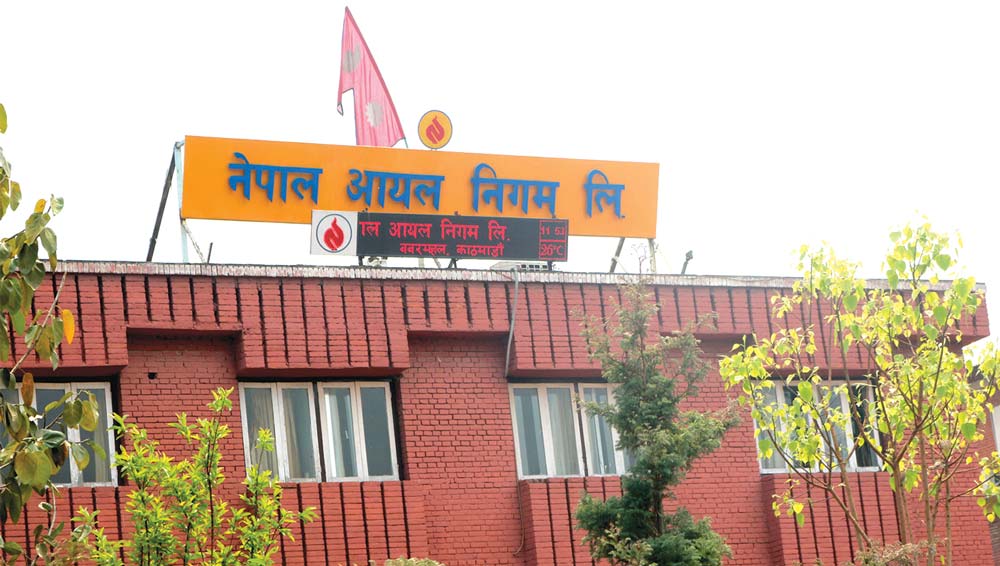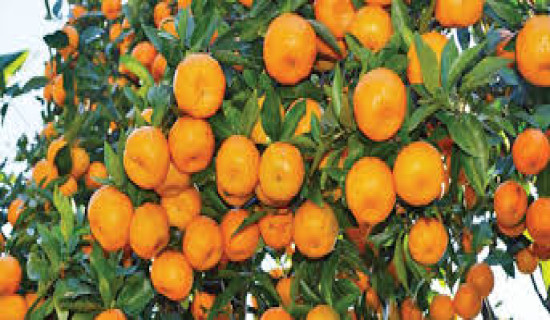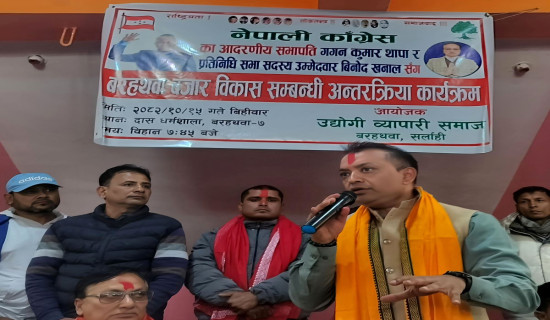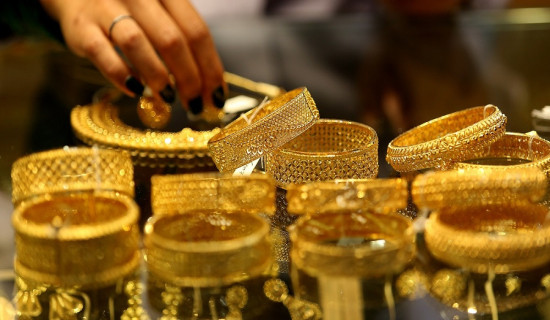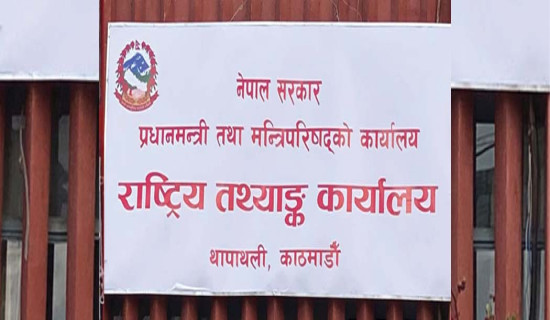- Friday, 30 January 2026
Nepal imports petroleum worth Rs. 264 billion while total export amounts only Rs. 139 billion
Kathmandu, June 23: Nepal has been spending billions of rupees annually for the import of petroleum products.
According to the latest trade statistics made public by the Department of Customs, the country has imported petroleum products, including petrol, diesel, kerosene, aviation fuel and liquefied petroleum products (LPG), worth about Rs. 264 billion from India during the first 11 months of the current fiscal year.
The expenditure for the import of petroleum products is almost double the volume of country’s total export during the review period.
The country exported goods only worth Rs. 139.26 billion during the first 11 months of the current fiscal year.
The share of petroleum products in the total import is highest among the others imported items. Its share in the total import during the review period is 18.14 per cent.
It shows that Nepal is spending a huge amount for the import and consumption of petroleum products.
The country had imported petroleum products worth Rs. 300.28 billion in the last fiscal year 2022/23 while petroleum products worth Rs. 322 billion had been imported in the fiscal year 2021/22.
The consumption of petroleum products has declined during the last fiscal year, resulting in a decrease in their import. The consumption of petroleum products, especially diesel and petrol, decreased significantly in the country last fiscal year due to significant price hikes of petroleum products, slow pace of development works and improvement in electricity supply in the country.
Like last fiscal year, the import of petroleum products has decreased in the first 11 months of the current fiscal year. The import of petroleum products in terms of amount has decreased by 3.56 per cent during the review period as compared to same period last fiscal year.
According to statistics, about 1.251 million kilolitres of diesel worth Rs. 129.20 billion and 630,063 kilolitres of petrol worth Rs. 62.87 have been imported during the first 11 months of the current fiscal year.
Similarly, the country imported 184,066 kilolitre of aviation fuel worth Rs. 19.47 billion and 11348 kilolitre of kerosene worth Rs. 1.19 billion during the review period.
About 1.22 million kiloliters of diesel worth Rs. 137.6 billion, 621,127 kiloliters of petrol worth Rs. 61.38 billion, 1,244,161 kilolitres of aviation fuel worth Rs. 18.93 billion and 11,444 kilolitre of kerosene worth Rs. 1.32 billion were imported during the first 11 months of the last fiscal year.
Spokesperson of the Nepal Oil Corporation (NOC) Manoj Kumar Thakur said that the import of petroleum products in terms of amount had decreased due to reduction in their import prices during the review period as compared to same period last year.
“In terms of quantity, the import of diesel has increased during the review period as compared to same period last fiscal year. However, the import of petrol, kerosene and aviation fuel has decreased,” he said.
He said that improvement in the electricity supply in the recent years had also contributed to decrease in the growth of consumption of diesel in the industrial sector.
The import of cooking gas has dropped due to increased access to electricity of citizens and increased use of electric stoves over the years, he said.
According to the statistics, the import cost of LGP has reduced by 6 per cent during the first 11 months of the current fiscal as compared to same period last fiscal year.
The country imported 481,625 tonnes of LPG worth Rs. 51.07 billion during the review period. Around 474,057 tonnes of LPG worth Rs. 54.32 billion was imported during the first 11 months of the last fiscal year.
According to Thakur, the consumption growth rate of LPG has decreased even though there is a slight increase in volume during the review period in the country due to use of electric stoves especially in urban area.
"With the improvement in the supply of electricity, the consumers are attracted towards the use of electric stoves which contributed to control in the growing demand for cooking gas," he said.
He further said that it was a must to promote the use of electric vehicles and electric stoves for increasing consumption of electricity in the country to save huge amounts of money to be spent for the import of fossil fuel.
The use of electric stoves and electric vehicles has also been increasing in the country for the last three years.

